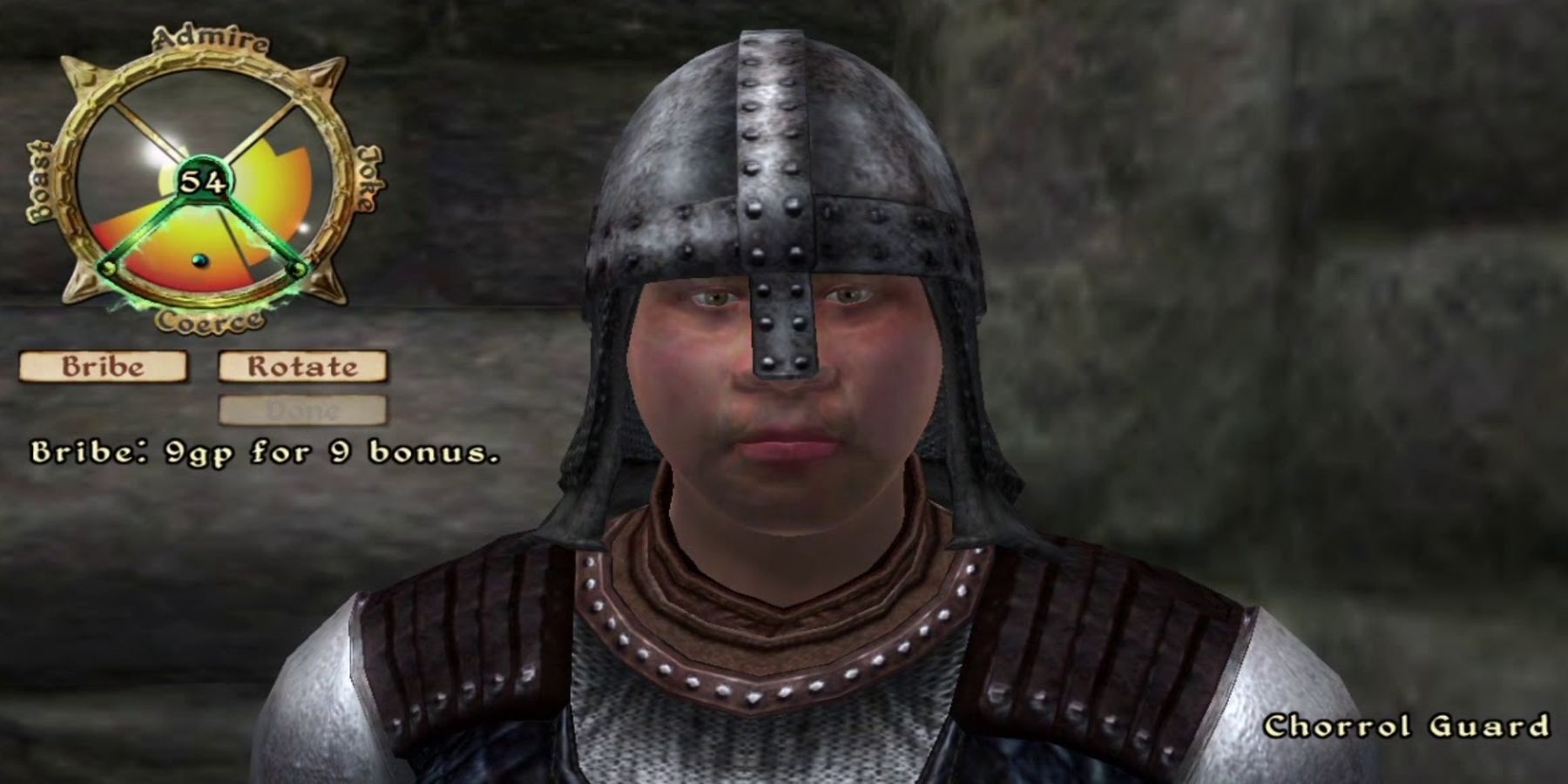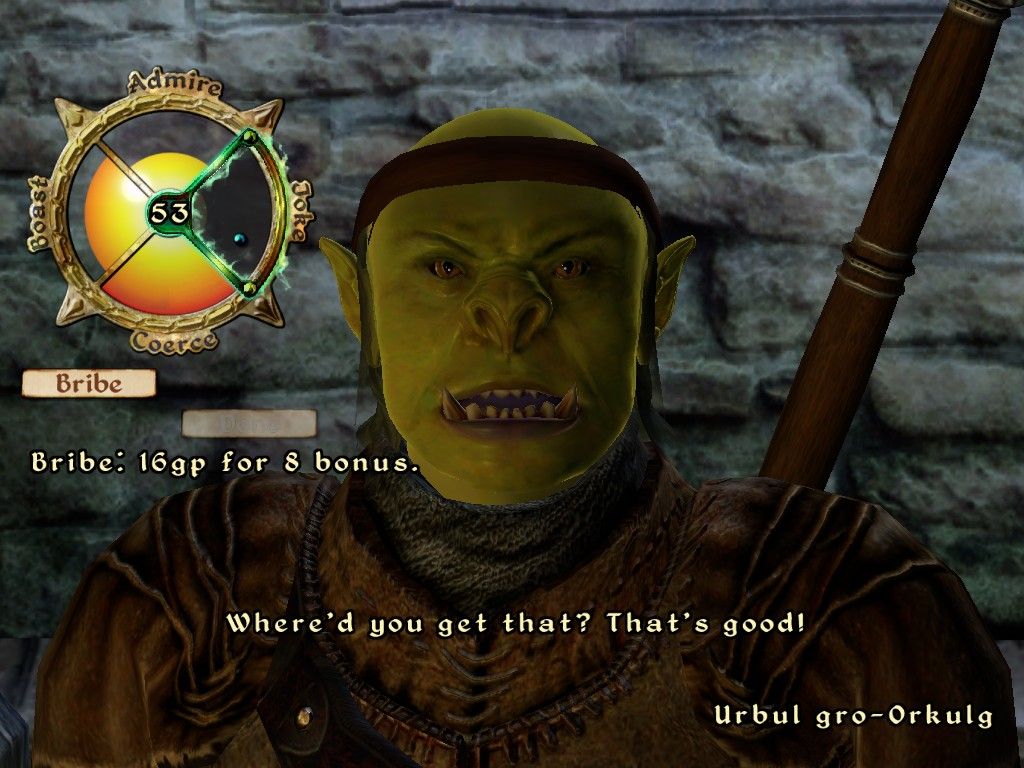Dialogue is one of the most important elements of an RPG. While a player may spend most their time swinging a sword or shooting from behind cover, it's an RPG's dialogue that moves the plot along and gives the world its life. An RPG's dialogue system is incredibly difficult to get right, with the developer having to find the sweet spot between player agency and delivering the necessary information in a succinct and clear way. Even RPGs with some of the best dialogue don't quite nail their player-NPC interactions. That's where The Elder Scrolls IV: Oblivion comes in, with its simple, intuitive persuasion-based dialogue system.
Despite releasing 16 years ago, Oblivion's dialogue system is still praised today, and for good reason. The simple nature of the dialogue system, having it appear as a wheel-based mini game in which players simply have to choose one of four actions, makes it an intuitive and interactive way of engaging with an NPC's dialogue. With a recent interview from Bethesda confirming that Starfield is going to take heavy inspiration from this same system, there's never been a better time to remember Oblivion's persuasion dialogue mini-game.
How Oblivion's Persuasion Mini-Game Works
When a player initiates conversation with an NPC in Oblivion, they'll often be given the option to 'persuade' the character. When this dialogue option is chosen, the player begins a short mini-game.
A wheel to the left of the screen will appear, with four distinct segments. These segments are labeled "Admire," "Joke," "Coerce," and "Boast." The NPC will have a specific reaction to each of these options, which can be seen when the player hovers over the action, and the NPC makes a distinct facial expression. There are four possible reactions, indicated by these facial expressions, "Like," "Love," "Dislike," and "Hate."
During each phase of the mini-game, each segment of the wheel will have a certain amount filled in, represented by an orange bar filling in that segment. The more that the segment is filled in, the more responsive that NPC's reaction will be. The wheel also has a disposition meter in the center, which will increase based on how positive the NPC is feeling about the player's actions.
The general goal of the mini-game is to raise this disposition meter by choosing the actions that the NPC will "Like" or "Love." However, all four actions must be chosen in a given turn, so the player needs to strategize when they choose the options that the NPC will "Dislike" or "Hate."
When a player chooses an action, the filled-in segments rotate clockwise. The general strategy for this mini-game is to choose the "Dislike" and "Hate" options when the segment is barely filled in, as this will hardly provoke a reaction from the NPC, and should keep the disposition counter high. By choosing these options in the right order, the disposition counter in the center of the wheel should continue to increase each turn, eventually resulting in a successful persuasion.
If a player has a high enough Speechcraft skill, then they will be able to rotate the segments for free once per turn, giving them more opportunities to choose the "Dislike" and "Hate" options when their respective segments are barely filled in. A higher Speechcraft skill will also decrease the rate at which disposition is drained, giving the player more time to strategize. Bribes can also be used during the mini-game to increase the NPC's disposition.
To increase an NPC's disposition even further, players can cast various charm spells or can use the Imperial power "Voice of the Emperor." It may sound a little complicated when it's written down, but trying this mini-game once or twice should be enough to understand what's going on and how to succeed.
The Elder Scrolls 4: Oblivion is available on PC, PS3, and Xbox 360.


